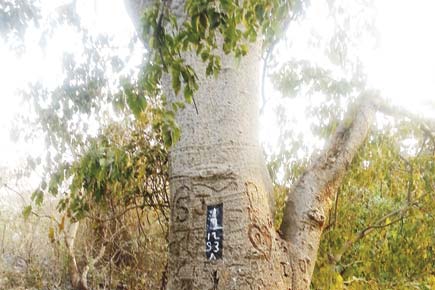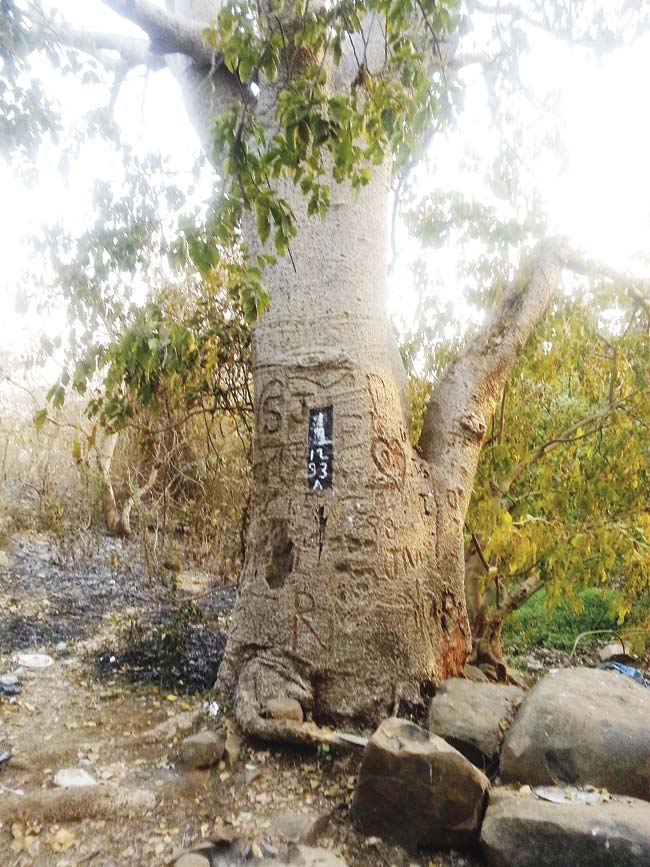A rare Baobab tree is among the 2,298 trees that could be felled for the proposed Metro III car depot in Aarey Colony; activists have also spotted several species of uncommon insects and birds in the forest

 Among the 2,298 trees that face the axe for the Metro line III car depot in Aarey Colony, is a rare Baobab tree that is at least 100 years old, and harks back to an even older era, when the Portuguese first brought the species over to the city all the way from Africa.
Among the 2,298 trees that face the axe for the Metro line III car depot in Aarey Colony, is a rare Baobab tree that is at least 100 years old, and harks back to an even older era, when the Portuguese first brought the species over to the city all the way from Africa.
ADVERTISEMENT
According to experts, there are currently fewer than 50 Baobabs in Mumbai, which makes it imperative that the tree at the Metro site in Aarey be saved.

A nature lover spotted this Baobab tree at the Metro III car depot site in Aarey Colony. Locals say it is at least 100 years old
The discovery of the tree comes less than a week after citizens spotted a group of black kites listed under the Wildlife Protection Act perched on trees at the car shed plot, even though the Metro authorities had claimed in an official report that there was no wildlife at the site (‘Activists spot black kites at Metro III site in Aarey’, February 18).
On Sunday, a nature lover visited the 30-hectare car depot site to collect information about the trees that are to be felled, but was shocked to see a Baobab there that will probably also be cut down.
Requesting anonymity, the nature lover told mid-day, “I am feeling really sad; because of this so-called development, the government is not only going to destroy the city’s important green cover, but in the process will also cut a Baobab tree.
I know that it is not an Indian tree, but there are very few Baobabs left in Mumbai and they should be protected.” The Baobab at the car depot site is at least a century old, said an 85-year-old local resident in one of the tribal padas in Aarey Colony.
Known as the ‘Tree of life’ by tribal communities in Africa, Baobabs can grow up to 98 feet and live to 3,000 years. They are easily identifiable by their massive trunks. “The Baobab tree is not a native Indian tree, but it was brought to India from Africa hundreds of years ago by the Portuguese.
They planted them wherever they set up their colonies. The trees were brought to India in the middle of 15th century. With around 50 such trees left in Mumbai, we should try and protect them,” said Dr Marselin Almeida, an eminent botanist in the city.
Other Baobabs can also be found near Bhabha Hospital in Bandra, near the Byculla zoo, in Colaba and also near the Seepz area. There is also another Baobab on the southbound stretch of Aarey road that goes towards Marol from Picnic Point.
 Subscribe today by clicking the link and stay updated with the latest news!" Click here!
Subscribe today by clicking the link and stay updated with the latest news!" Click here!






